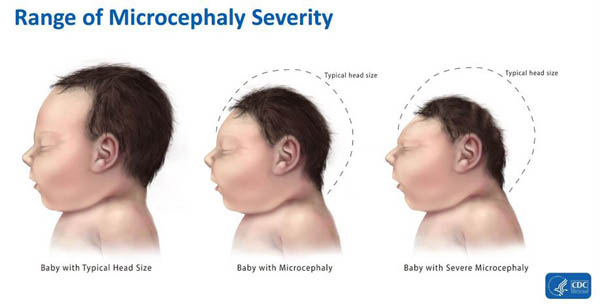→ Infectious Disease → Zika Virus → Expecting Mothers
Expecting Mothers and Couples Trying to Become Pregnant
What you need to know about Zika virus
On this page:
- Sexual Transmission
- Zika & Microcephaly
- Congenital Zika Syndrome
- Zika & Asymptomatic Infants
- Other Resources for Expecting Mothers
If you are pregnant or trying to become pregnant, you should take extra precautions because of the risks associated with Zika virus during pregnancy. You should talk to your doctor about the risks and possible consequences of traveling to an area with risk of Zika.

If you are pregnant, you should talk to your healthcare provider about testing if:
- You traveled to an area with risk of Zika or had unprotected sex with a partner who lived in or traveled to one of these areas and have symptoms. Make sure to tell your healthcare provider where you or your partner traveled. Symptoms include: headache, fever, rash, conjunctivitis (red eyes), joint pain, or muscle pain.
- If you do not have symptoms but you frequently travel to an area with risk of Zika.
Routine testing is not recommended for pregnant women exposed to these areas who do not have symptoms. Your doctor may offer testing based on your individual situation.
Sexual Transmission
Zika can be passed through sex from a person that has Zika to his or her partner(s). This includes vaginal, anal, and oral sex and the sharing of sex toys. Infected people can pass Zika through sex even if they do not have symptoms.
If a pregnant women or her partner must travel to an area with risk of Zika, the couple should use condoms from start to finish every time they have sex or not have sex for the entire pregnancy.
If a couple is trying to conceive and the female partner was exposed to an area with risk of Zika, they should wait at least 8 weeks after the last possible exposure or after symptoms start before trying to conceive. If the male partner was exposed to an area with risk of Zika, they should wait at least 3 months after the last possible exposure or after symptoms start before trying to conceive. During this waiting period, couples should use condoms or not have sex.
Zika & Microcephaly
Zika virus during pregnancy can cause microcephaly. Microcephaly is defined as an abnormal smallness of the head and associated with incomplete brain development. This occurs when the baby's brain does not develop properly in the womb. The pictures below show the difference in head size between a typical baby and one with microcephaly.

Congenital Zika Syndrome
Congenital Zika syndrome is a pattern of birth defects which is unique to fetuses and infants infected with Zika prior to birth. A baby with congenital Zika syndrome might have one or more of the following conditions:
- Microcephaly, or smaller than average head size
- Problems with brain development
- Feeding problems such as difficulty swallowing
- Hearing loss
- Seizures
- Vision problems
- Problems with joint movement
- Too much muscle tone restricting body movement soon after birth
Some of the conditions listed above can impact the child's progress in moving, learning, speaking, and play. This is referred to as the child's "developmental delay." Check out this website, Milestones in Action, to see photo and video examples of important developmental milestones.
Zika & Asymptomatic Infants

Since the long-term effects of Zika virus infection during pregnancy are still unknown, it is important that you continue to follow-up with your doctor throughout your baby's entire first year if you were possibly infected during pregnancy. Tracking your baby's development will help to identify problems early.